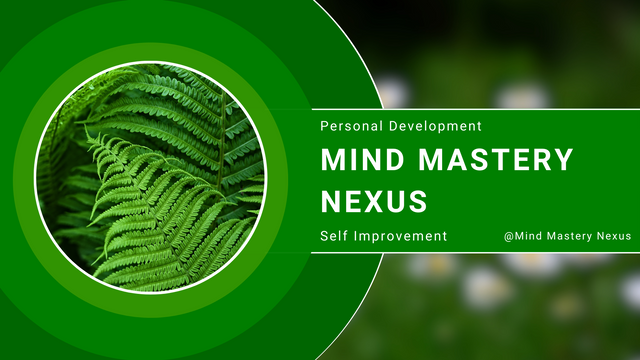
Finding moments of quiet and tranquility in today's fast-paced and stressful environment often seem unattainable. We are frequently caught up in a continuous loop of thoughts and worries, seeking to attain balance and inner serenity. However, mindfulness is a strong tool that may help us negotiate the turmoil of everyday life and improve our experience.
Mindfulness
Mindfulness is the deliberate practice of paying attention to the present moment without judgment. It entails developing heightened awareness of our thoughts, feelings, physiological sensations, and surroundings. While mindfulness originated in ancient Buddhist traditions, it has recently gained increasing popularity as a secular practice supported by scientific study.
Mindfulness helps us to examine our thoughts and feelings with curiosity and acceptance, rather than being consumed by them or attempting to suppress them. It invites us to completely experience each moment rather than being consumed by regrets about the past or fears about the future. Mindfulness allows us to acquire a deeper sense of clarity, emotional resilience, and overall well-being in this way.
Mindfulness can help you transform your life
- Reducing stress and anxiety
Mindfulness has been proven to be a helpful strategy in the management of stress and anxiety. We can disconnect from the habitual patterns of worrying and pondering that often lead to these sentiments by focusing our attention on the present moment. Mindfulness allows us to separate ourselves from our thoughts, allowing us to respond to problems with better clarity and serenity. - Improving emotional well-being
Mindfulness teaches us to understand and accept our feelings more deeply. Rather than being overwhelmed by unpleasant feelings or pushing them away, we can observe them objectively, allowing them to arise and pass without clinging to them. This technique builds emotional resilience, lowers reactivity, and increases general well-being. - Improving attention and concentration
In a world full of distractions, it can be difficult to maintain focus and concentration. Mindfulness practice trains our attention and makes us more aware of when our thoughts wander. We can improve our ability to concentrate and keep concentration by gently bringing our attention back to the present moment, resulting in enhanced productivity and efficiency in numerous facets of life. - Cultivating self-compassion
Mindfulness enables us to be kind and compassionate to ourselves and our experiences. We can break away from self-criticism and build a healthier relationship with ourselves by cultivating a nonjudgmental attitude toward our ideas, feelings, and actions. This self-compassion enables us to treat ourselves with the same love and understanding that we would extend to a close friend, resulting in higher self-esteem and general self-care. - Relationship nurturing
Mindfulness has the ability to improve our connections with others. We may create deeper ties and better communication by being totally present and attentive while dealing with others. Mindfulness allows us to listen with openness and empathy, which promotes understanding and helps to resolve problems. It enables us to become more sensitive to the needs and feelings of others around us, resulting in a more peaceful and compassionate social environment.
How to Implement Mindfulness in Your Daily Life
Mindfulness does not have to be difficult to incorporate into your daily life.
Methods for getting started:
a. Mindful breathing
Set aside some time each day to focus on your breathing. Observe how your breath enters and exits your body, bringing your attention back whenever your mind wanders.
b. Mindful eating
Mindful eating entails paying attention to the flavor, texture, and aroma of your food. Eat carefully and relish each bite, immersing yourself in the culinary experience.
c. Mindful walking
Walking mindfully involves paying attention to your body's feelings, muscular activity, and the surroundings around you. As you stroll, take in the sights, sounds, and fragrances.
d. Mindful pauses
Take brief breaks throughout the day to pause and refocus your attention on the present moment. Observe your thoughts and emotions without passing judgment, and then re-center yourself before proceeding with your activities.
e. Mindful activities
Engage in your regular tasks with complete presence and attentiveness. Bring your attention to the activity at hand and notice the subtleties of the experience, whether it's cleaning dishes, performing housework, or working on a project.
Conclusion
Finally, the strength of mindfulness rests in its ability to improve our lives by fostering a greater feeling of awareness, presence, and acceptance. We may reduce stress, improve emotional well-being, improve focus, promote self-
compassion, and nourish our relationships by adopting mindfulness into our everyday routines. So, why not begin your mindfulness journey today and discover the life-changing effects it can have?